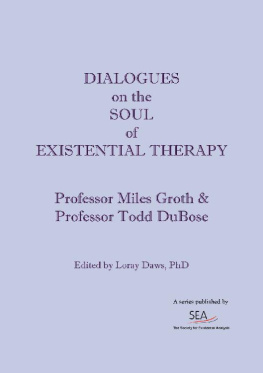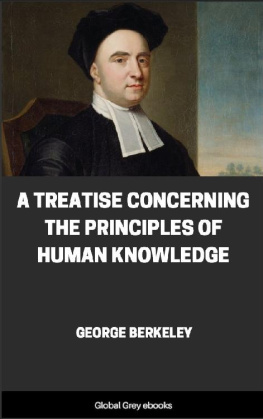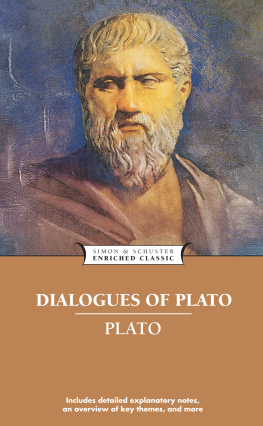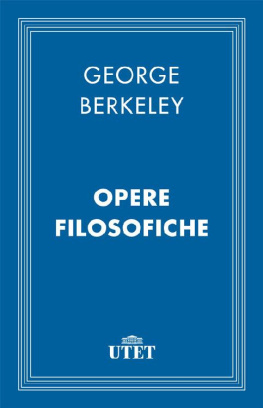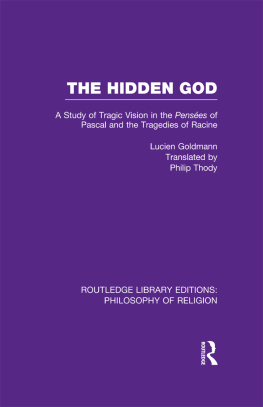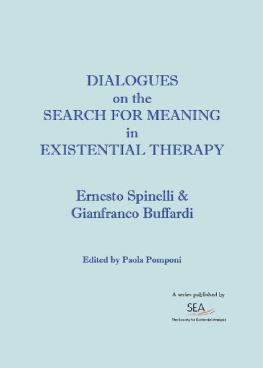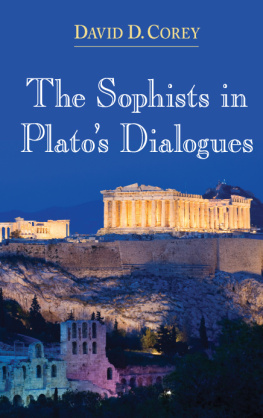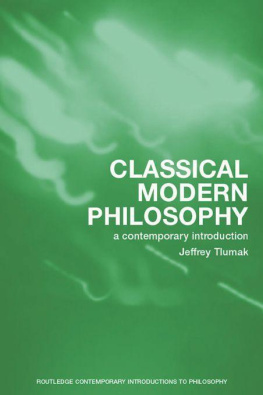Berkeley George - Three Dialogues Between Hylas and Philonous
Here you can read online Berkeley George - Three Dialogues Between Hylas and Philonous full text of the book (entire story) in english for free. Download pdf and epub, get meaning, cover and reviews about this ebook. genre: Science. Description of the work, (preface) as well as reviews are available. Best literature library LitArk.com created for fans of good reading and offers a wide selection of genres:
Romance novel
Science fiction
Adventure
Detective
Science
History
Home and family
Prose
Art
Politics
Computer
Non-fiction
Religion
Business
Children
Humor
Choose a favorite category and find really read worthwhile books. Enjoy immersion in the world of imagination, feel the emotions of the characters or learn something new for yourself, make an fascinating discovery.
- Book:Three Dialogues Between Hylas and Philonous
- Author:
- Genre:
- Rating:3 / 5
- Favourites:Add to favourites
- Your mark:
- 60
- 1
- 2
- 3
- 4
- 5
Three Dialogues Between Hylas and Philonous: summary, description and annotation
We offer to read an annotation, description, summary or preface (depends on what the author of the book "Three Dialogues Between Hylas and Philonous" wrote himself). If you haven't found the necessary information about the book — write in the comments, we will try to find it.
Three Dialogues Between Hylas and Philonous — read online for free the complete book (whole text) full work
Below is the text of the book, divided by pages. System saving the place of the last page read, allows you to conveniently read the book "Three Dialogues Between Hylas and Philonous" online for free, without having to search again every time where you left off. Put a bookmark, and you can go to the page where you finished reading at any time.
Font size:
Interval:
Bookmark:
The Project Gutenberg EBook of Three Dialogues between Hylas and Philonous
in Opposition to Sceptics and Atheists, by George Berkeley
This eBook is for the use of anyone anywhere at no cost and with
almost no restrictions whatsoever. You may copy it, give it away or
re-use it under the terms of the Project Gutenberg License included
with this eBook or online at www.gutenberg.net
Title: Three Dialogues between Hylas and Philonous in Opposition to Sceptics and Atheists
Author: George Berkeley
Posting Date: June 29, 2009 [EBook #4724]
Release Date: December, 2003
First Posted: March 7, 2002
Language: English
*** START OF THIS PROJECT GUTENBERG EBOOK THREE DIALOGUES ***
Produced by Col Choat. HTML version by Al Haines.
IN OPPOSITION TO SCEPTICS AND ATHEISTS
THE SECOND DIALOGUE
THE THIRD DIALOGUE
PHILONOUS. Good morrow, Hylas: I did not expect to find you abroad so early.
HYLAS. It is indeed something unusual; but my thoughts were so taken up with a subject I was discoursing of last night, that finding I could not sleep, I resolved to rise and take a turn in the garden.
PHIL. It happened well, to let you see what innocent and agreeable pleasures you lose every morning. Can there be a pleasanter time of the day, or a more delightful season of the year? That purple sky, those wild but sweet notes of birds, the fragrant bloom upon the trees and flowers, the gentle influence of the rising sun, these and a thousand nameless beauties of nature inspire the soul with secret transports; its faculties too being at this time fresh and lively, are fit for those meditations, which the solitude of a garden and tranquillity of the morning naturally dispose us to. But I am afraid I interrupt your thoughts: for you seemed very intent on something.
HYL. It is true, I was, and shall be obliged to you if you will permit me to go on in the same vein; not that I would by any means deprive myself of your company, for my thoughts always flow more easily in conversation with a friend, than when I am alone: but my request is, that you would suffer me to impart my reflexions to you.
PHIL. With all my heart, it is what I should have requested myself if you had not prevented me.
HYL. I was considering the odd fate of those men who have in all ages, through an affectation of being distinguished from the vulgar, or some unaccountable turn of thought, pretended either to believe nothing at all, or to believe the most extravagant things in the world. This however might be borne, if their paradoxes and scepticism did not draw after them some consequences of general disadvantage to mankind. But the mischief lieth here; that when men of less leisure see them who are supposed to have spent their whole time in the pursuits of knowledge professing an entire ignorance of all things, or advancing such notions as are repugnant to plain and commonly received principles, they will be tempted to entertain suspicions concerning the most important truths, which they had hitherto held sacred and unquestionable.
PHIL. I entirely agree with you, as to the ill tendency of the affected doubts of some philosophers, and fantastical conceits of others. I am even so far gone of late in this way of thinking, that I have quitted several of the sublime notions I had got in their schools for vulgar opinions. And I give it you on my word; since this revolt from metaphysical notions to the plain dictates of nature and common sense, I find my understanding strangely enlightened, so that I can now easily comprehend a great many things which before were all mystery and riddle.
HYL. I am glad to find there was nothing in the accounts I heard of you.
PHIL. Pray, what were those?
HYL. You were represented, in last night's conversation, as one who maintained the most extravagant opinion that ever entered into the mind of man, to wit, that there is no such thing as MATERIAL SUBSTANCE in the world.
PHIL. That there is no such thing as what PHILOSOPHERS CALL MATERIAL SUBSTANCE, I am seriously persuaded: but, if I were made to see anything absurd or sceptical in this, I should then have the same reason to renounce this that I imagine I have now to reject the contrary opinion.
HYL. What I can anything be more fantastical, more repugnant to Common Sense, or a more manifest piece of Scepticism, than to believe there is no such thing as MATTER?
PHIL. Softly, good Hylas. What if it should prove that you, who hold there is, are, by virtue of that opinion, a greater sceptic, and maintain more paradoxes and repugnances to Common Sense, than I who believe no such thing?
HYL. You may as soon persuade me, the part is greater than the whole, as that, in order to avoid absurdity and Scepticism, I should ever be obliged to give up my opinion in this point.
PHIL. Well then, are you content to admit that opinion for true, which upon examination shall appear most agreeable to Common Sense, and remote from Scepticism?
HYL. With all my heart. Since you are for raising disputes about the plainest things in nature, I am content for once to hear what you have to say.
PHIL. Pray, Hylas, what do you mean by a SCEPTIC?
HYL. I mean what all men meanone that doubts of everything.
PHIL. He then who entertains no doubts concerning some particular point, with regard to that point cannot be thought a sceptic.
HYL. I agree with you.
PHIL. Whether doth doubting consist in embracing the affirmative or negative side of a question?
HYL. In neither; for whoever understands English cannot but know that DOUBTING signifies a suspense between both.
PHIL. He then that denies any point, can no more be said to doubt of it, than he who affirmeth it with the same degree of assurance.
HYL. True.
PHIL. And, consequently, for such his denial is no more to be esteemed a sceptic than the other.
HYL. I acknowledge it.
PHIL. How cometh it to pass then, Hylas, that you pronounce me A SCEPTIC, because I deny what you affirm, to wit, the existence of Matter? Since, for aught you can tell, I am as peremptory in my denial, as you in your affirmation.
HYL. Hold, Philonous, I have been a little out in my definition; but every false step a man makes in discourse is not to be insisted on. I said indeed that a SCEPTIC was one who doubted of everything; but I should have added, or who denies the reality and truth of things.
PHIL. What things? Do you mean the principles and theorems of sciences? But these you know are universal intellectual notions, and consequently independent of Matter. The denial therefore of this doth not imply the denying them.
HYL. I grant it. But are there no other things? What think you of distrusting the senses, of denying the real existence of sensible things, or pretending to know nothing of them. Is not this sufficient to denominate a man a SCEPTIC?
PHIL. Shall we therefore examine which of us it is that denies the reality of sensible things, or professes the greatest ignorance of them; since, if I take you rightly, he is to be esteemed the greatest SCEPTIC?
HYL. That is what I desire.
PHIL. What mean you by Sensible Things?
HYL. Those things which are perceived by the senses. Can you imagine that I mean anything else?
PHIL. Pardon me, Hylas, if I am desirous clearly to apprehend your notions, since this may much shorten our inquiry. Suffer me then to ask you this farther question. Are those things only perceived by the senses which are perceived immediately? Or, may those things properly be said to be SENSIBLE which are perceived mediately, or not without the intervention of others?
Font size:
Interval:
Bookmark:
Similar books «Three Dialogues Between Hylas and Philonous»
Look at similar books to Three Dialogues Between Hylas and Philonous. We have selected literature similar in name and meaning in the hope of providing readers with more options to find new, interesting, not yet read works.
Discussion, reviews of the book Three Dialogues Between Hylas and Philonous and just readers' own opinions. Leave your comments, write what you think about the work, its meaning or the main characters. Specify what exactly you liked and what you didn't like, and why you think so.




